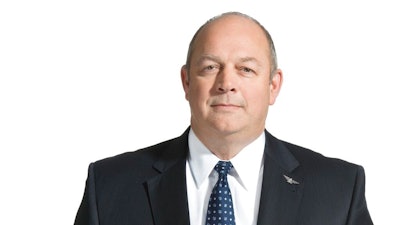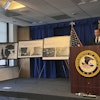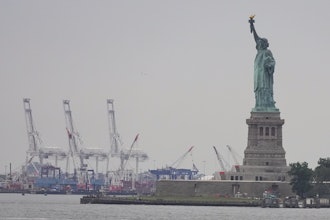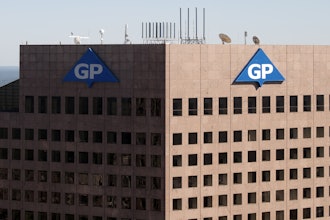
Stephen Dickson flew military jets then went on to pilot five different jetliners during a 27-year career at Delta Air Lines that was capped by running the company's daily operations.
On paper, he checks all the boxes to become the next head of the U.S. Federal Aviation Administration.
But at a time when the FAA is under scrutiny for its comfy relations with aircraft maker Boeing Co. following two deadly crashes of the 737 Max aircraft, President Donald Trump's nominee to head the agency is sure to face questions about his industry ties.
On Wednesday, the 61-year-old Dickson will appear before the Senate Commerce Committee to mark the beginning of his confirmation process. Members of the committee, who are not expected to vote for several weeks, likely will ask about his plans to lead the aviation regulator during troubled times.
The FAA has overseen a U.S. airline industry with a stellar safety record in the past decade, but Dickson would take over after crashes of the American-made and FAA-certified 737 Max in Indonesia and Ethiopia killed 346 people.
The FAA allowed the Max to keep flying after the first crash, even though it knew Boeing was working on a fix to critical flight-control software implicated in that accident. It was the last regulator to ground the planes after the second crash.
If confirmed by the full Senate, Dickson will have some image repair to do with regulators in other countries who had grown accustomed to accepting the FAA's judgment as the final word on the safety of new planes. Many now see the agency as too close to Boeing and airlines.
The FAA is dealing with a criminal probe into whether Boeing misled regulators about the flight control software on the Max. Two congressional committees and the Transportation Department also are investigating the FAA's relationship with Boeing.
Dickson will face tough decisions on whether to approve Boeing's update of the flight software and when the jets can fly again. Even after those decisions are made, European and Canadian regulators say they will do their own reviews.
Committee members also are likely to ask about the FAA's longstanding practice of allowing industry "designees" — employees of the aircraft manufacturers — to inspect and test aircraft designs and components, with their work reviewed by FAA personnel.
"My antenna always goes up when we're talking about airline executives," said Scott Maurer, whose daughter Lorin died on Colgan Air Flight 3407 in 2009, the last fatal crash of a U.S. airliner. "Are they thinking about safety first? Or are they thinking about the industry?"
Maurer, who plans to attend the committee hearing, said Dickson's knowledge of aviation and leadership are plusses for him.
Dickson retired as senior vice president of flight operations for Delta, overseeing the Atlanta-based airline's day-to-day global operations. He also supervised regulatory compliance and pilot training and was the leader of Delta's 13,000-plus pilots, according to his Delta biography.
Dickson is a graduate of the Air Force Academy and served as an F-15 fighter pilot. He has a law degree from Georgia State University.
After the military, he joined Delta and flew four different Boeing planes including the 737, as well as the Airbus A320.
"He's a professional pilot both on the ground and in the air," said Lee Moak, a former national president of the Air Line Pilots Association, who met Dickson while both were pilots at Delta. "He understands safety first — he understands it from industry, he understands it from the pilot perspective."
Dickson has support of Airlines for America, an industry trade group, which urged the committee to quickly approve his nomination. The organization said in a statement that Dickson's record on safety at Delta speaks for itself.
If confirmed, Dickson would replace Daniel Elwell, who has been acting FAA administrator since January 2018.
Dickson also is likely to be asked about where he stands on Trump's proposal to move the nation's air traffic control system to a private nonprofit company. While Dickson was at Delta, the airline split from the rest of the major U.S. carriers by opposing privatization. Dickson wrote that privatization would cost travelers more by financing air traffic control with user fees instead of taxes and congressional appropriations.
William Waldock, a professor of safety science at Embry-Riddle Aeronautical University, said he agrees with Dickson's stance against privatization, and hopes he can modernize air traffic control, a process that has been on hold with an acting administrator.
"I believe he has the right background to head the FAA," Waldock said, noting Dickson's background of military and commercial flying and airline management.






















